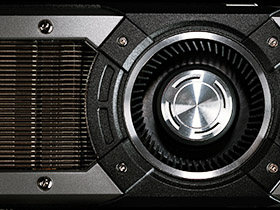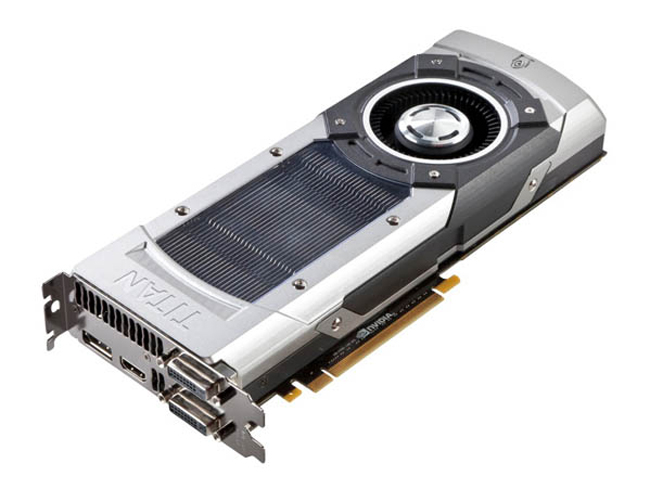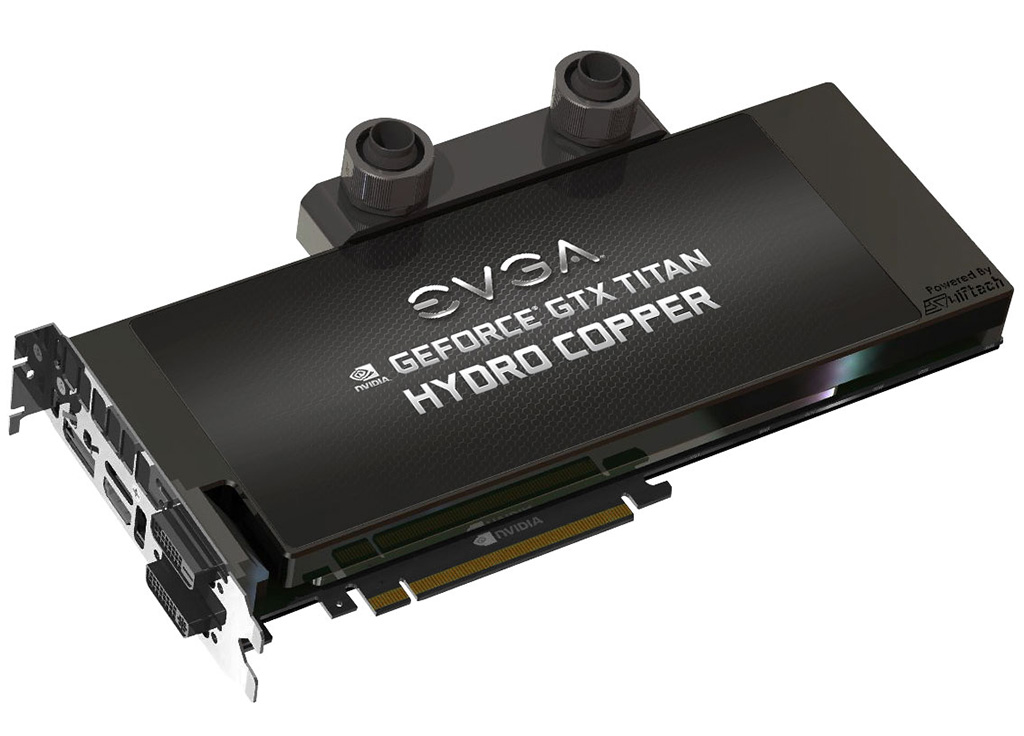A List of Manufacturers Releasing GeForce GTX Titan Cards
Various manufacturers including Asus, EVGA, Gainward, Galaxy, Gigabyte, Inno3D, MSI, Palit and Zotac have released their Nvidia GeForce GTX Titan cards.
A number of manufacturers have released their Titan cards, and a few of them deviate from the reference specifications, as Nvidia has supposedly encouraged manufacturers to stick with the stock PCB, just like it did with the GTX 690. Because of this, almost all the cards are identical replica's of Nvidia's reference model, and the cards that deviate from the reference specifications come with nothing more than a small software suite or some extra peripherals. The only manufacturer that has more than a minor addition is EVGA, which has released a HydroCopper version of the card on top of its reference clone.
The standard reference specifications of the card is a GK110 GPU baked with a lithography of 28 nm. The cards feature 2,688 CUDA cores, 48 ROPs, 224 TMUs, 6 GB of GDDR5 over a 384 bit memory interface that runs at 6008 MHz, and a base clock speed of 837 MHz with a GPU boost speed of 876 MHz.
The two manufacturers that include a software suite to go with the card are Asus and MSI. Asus ships the card with its own GPU Tweak Utility, and MSI ships the card with its own MSI Afterburner software. Both software packages are for monitoring GPU temperatures, fan speed, and adjusting the clock speeds for easy overclocking.
Gigabyte has decided to throw in a few extras, so rather than the default empty box buyers will find a Aivia themed pack of playing cards (Although we'd be willing to bet that anyone buying this card will be doing something other than playing with the playing cards when they get it) along with a gaming mouse pad.
EVGA has gone the extra distance to include a separate cooler. The HydroCopper version of EVGA's graphics card was developed in partnership with Swiftech, and the cooler is built mainly with nickel plated copper. Moreover, the card is marked as a SuperClocked card, however, the clock speeds were not given. Neither was a price, but we can expect it to be priced about $300 above the reference model. EVGA is also releasing a reference version of the card without the HydroCopper cooler.
The GTX Titan should be hitting shelves soon, with pricing at roughly $1000 for all reference cards.
Contact Us for News Tips, Corrections and Feedback
Get Tom's Hardware's best news and in-depth reviews, straight to your inbox.
Niels Broekhuijsen is a Contributing Writer for Tom's Hardware US. He reviews cases, water cooling and pc builds.
-
saxplayingcompnerd It must have been tricky to price this card. On one hand it under performs its price point (single card). On the other it is by no means a rip off if you buy two, because two Titans out perform two 690s for the same price.Reply -
aoneone So let me get this right.. I need 2 Titans in SLI to see any noticeable difference in Far Cry 3 with 3 screens over the 690 gtx correct? Meh... I think I will wait for the 700 series and I love my gtx 670 ^_^Reply -
Soda-88 If AMD kept rolling new series every 12 months, this card would be half price now. Nvidia really made some dough on Kepler thanks to AMD.Reply
Also, I still believe this was supposed to be original 680 if 7970 wasn't so underwhelming. Still, I'd rather buy 7970 than 680 due to Nvidia pulling an Apple with this generation. -
stickmansam I like playing cards:)Reply
I thought the software utilities are available freely for download so probably aren't much use -
chumly If anyone wants anyone knocked off, I'm only charging 3 of those liquid-cooled Titans. ;)Reply -
otacon72$1,000 for a video card... proves the saying there's a sucker born every minute.Spoken by someone who can't afford one. Some of us can and do buy these types of cards. My single 30" display costs more than this card. I game at 2560 x 1600 so yeh I need one of these or 2 who knows...Reply
-
Well if I had the money I'd get one from EVGA to replace my 400 series card. I've always had good luck with their cards. Sucks being unemployed :Reply
-
soldier2013Spoken by someone who can't afford one. Some of us can and do buy these types of cards. My single 30" display costs more than this card. I game at 2560 x 1600 so yeh I need one of these or 2 who knows...No you don't. My HD 7850 runs 1440p just fine. You really have to be a sucker to spend $1000 on a single GPU.Reply



